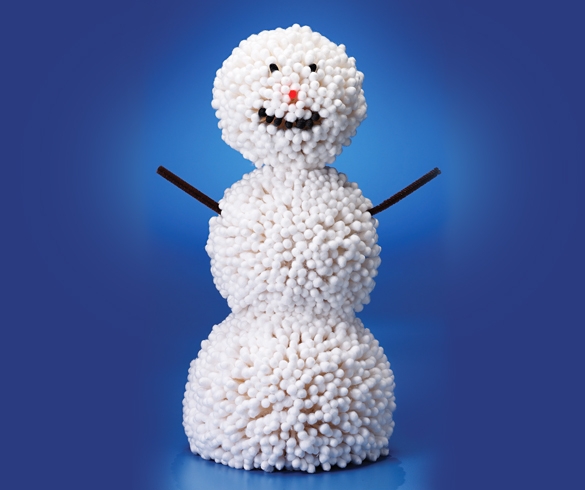
You started the holiday season with resolve. You swore you’d steer clear of cookies and limit your cocktails to just one — two, tops. And you did, at first. But with each passing party, the call of the cookie tray and the open bar grew louder until, finally, you caved. By the time the new year rolled around, sweets — in the form of baked goods or sugary libations — had become part of your everyday diet. A few pounds later, you’re left wondering: How did I let this happen? Turns out, weak willpower isn’t completely to blame.
In a new paper published in Cognitive Neuroscience, researchers set out to see how the brain’s self-control and reward centers square off when they spot a food signal and how the pathway between those centers might affect your ability to abstain from temptation. To investigate this, they examined the white matter connections inside the minds of 36 women, ages 18–23, with a history of diet failures. They also measured their total body-fat percentages, which ranged between 16.6–38.2%.
THE STUDY
At the start of the experiment, subjects were asked to watch a seven-minute video about Canadian bighorn sheep while trying to ignore words on screen that aimed to distract them. The point of the sheep flick was to get people to let their guard down so their reactions were more natural. Once the ladies loosened up a bit, they were ready for the real examination to begin.
Each woman was hooked up to a functional MRI machine and asked to look at a series of 270 pictures. Two-thirds of the photos were images of people or nature. The other 90 were shots of appetizing food. For every photo that appeared, the women were asked to mark whether it showed something indoors or outdoors. Their answers, however, weren’t what interested researchers, who were really out to monitor the fMRI recordings of their brain activity.
The researchers were primarily concerned with two areas in the brain: the orbitofrontal cortex, which is considered the reward region, and the inferior frontal gyrus, which is associated with self-control and decision making. Images of tantalizing food elicited a greater response from the reward region than the pictures of nature or people. That much was expected. Try as we might to appreciate beautiful scenery, our brains are hardwired to see edible delights as more rewarding. That makes sense on an evolutionary level — a breathtaking sunset won’t keep you alive when you’re starving.
THE AHA! MOMENT
While this feedback was a no-brainer, literally, what intrigued scientists more was the subjects’ responses from the control region of the brain. The IFG also showed heightened activity.
“One interpretation is that dieters are super aware of food cues in every instance,” study author Pin-Hao Andy Chen, a doctoral candidate in cognitive neuroscience at Dartmouth College, explained in an email. “They have to constantly regulate (inhibit and monitor) their desires to appetitive food cues in daily life.”
So essentially, in the brains of chronic dieters, food prompted two responses simultaneously. The reward part of their mind was saying “Ooh, good! Eat!” Meanwhile the control part was saying “Nooo! Don’t do it!” If that sounds exhausting — like the brain is arguing with itself — that’s because it is. And there’s a limit on how long the “don’t do it!” section can win. Self-regulation is a limited resource.
“When [dieters] keep doing this, they become more vulnerable to lose control because their regulation resource has been drained,” Chen says.
WHY WHITE MATTER MATTERS
During the analysis that followed the exam, researchers made another interesting discovery. The white matter pathway connecting the reward region (OFC) and control region (IFG) was weaker in people who had higher body-fat percentages. Weaker white matter makes the two sections less able to communicate with each other, which scientists say can also play a role in self-control failures.
“With an inefficient communication between the executive control and reward regions, individuals with reduced [white matter] integrity may have difficulty in overriding rewarding temptations, leading to a greater chance of becoming obese,” the paper states.
What’s clear in this study is that when the white matter link between reward and self-control was weaker, the person was heavier. What’s not clear is why this occurs. Chen speculates it’s possible that all of the dieting failures weakened the pathway. But it’s equally possible that the connection was weak from the get-go and could be causing those lapses in self-control. Chen confirms more studies are need before science will know the answer.
In the meantime, there is good news you can take with you to your next food-heavy party, like Super Bowl Sunday. Some emerging science shows you can improve your white matter through training. Other studies also show that you can develop greater self-control through practice. The takeaway might be that willpower, like any form of strength, must be developed incrementally.







